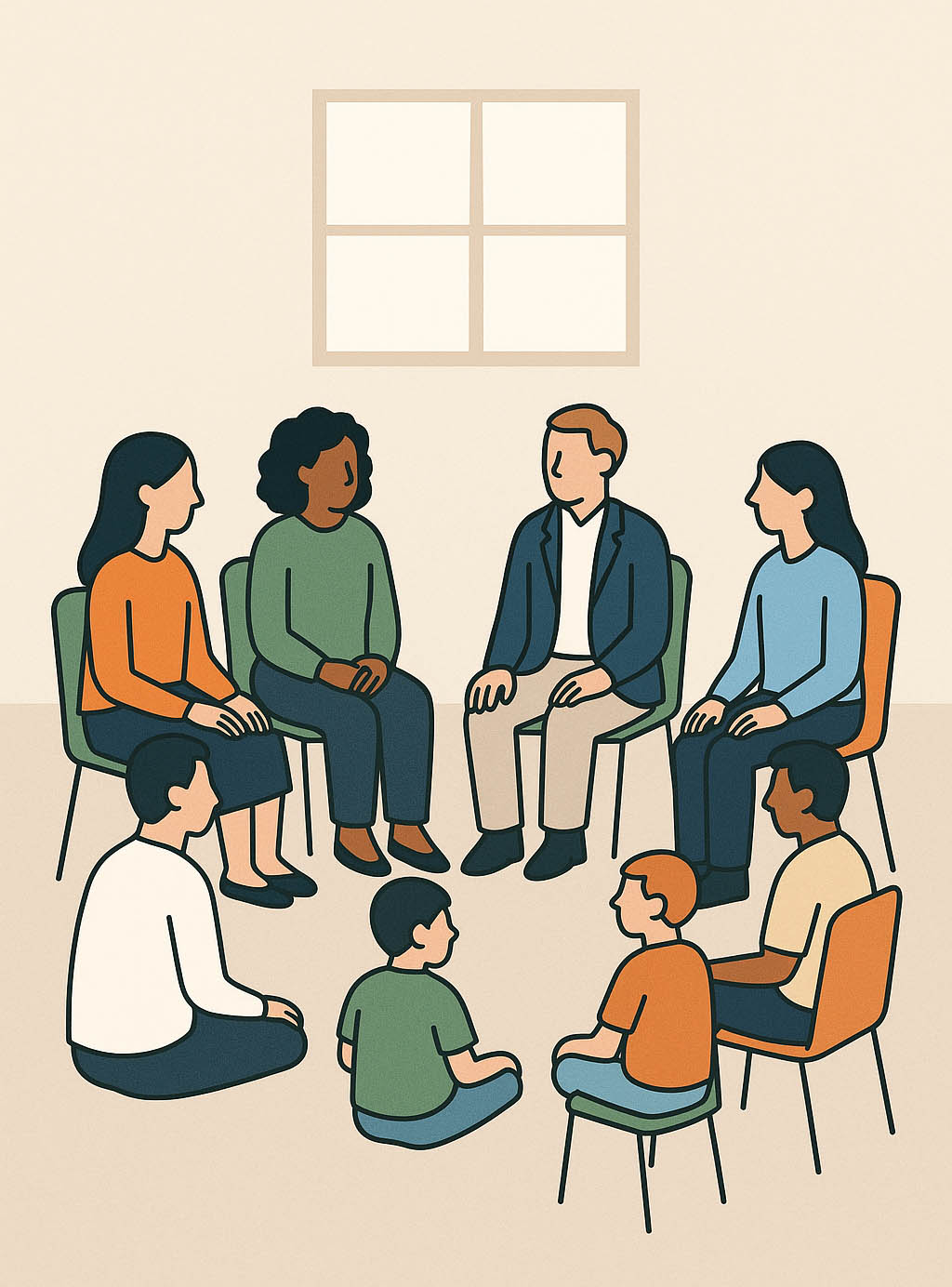Mediation services
Conflict resolution through private mediation, with dialogue and sustainable agreements
I offer my services as a conflict mediator and private conciliator, with training in restorative practices, helping individuals and organizations to engage in dialogue, understand each other, and reach agreements in challenging situations. I work from a place of neutrality, respecting all parties involved, and aiming to find practical and sustainable solutions.
I provide support especially in these areas:
Commercial and organizational conflicts
I assist businesses, shops, consumers, associations, educational institutions, healthcare institutions, political parties, and other organizations in finding solutions when differences arise between partners, employees (including labor mediation prior to SMAC or CEMAC), teams, or in their relationships with clients, suppliers, or collaborators. The goal is to resolve conflicts in a practical way, preserving relationships and avoiding litigation.
Family and personal conflicts
I help manage separations, divorces, inheritances, and other difficult situations within families or on a personal level, seeking agreements that consider the needs of everyone involved—especially when children or elderly individuals are concerned.
Neighborhood conflicts
I facilitate dialogue between neighbors—whether in homeowners’ associations or other shared living environments—to help them reach agreements and foster more harmonious coexistence.
Conflicts in the sports sector
I also intervene in conflicts related to the world of sports, both at amateur and professional levels. I work with clubs, athletes, coaches, and federations to help resolve disputes in a confidential, impartial, and constructive manner. These are mediation processes tailored to the specific needs of the sector, which can be conducted via videoconference and are valid nationwide, always ensuring a rigorous and respectful approach for all parties involved.
With my impartial support, you can address and resolve your disagreements constructively, promoting lasting, satisfactory, and mutually beneficial agreements.
Mediation and conciliation offer a faster, more cost-effective, and respectful alternative to court proceedings, with the added benefit of allowing you to retain control over the process and the outcome.
I am committed to ensuring the highest level of discretion, confidentiality, and respect, creating a safe space where each party feels heard, valued, and actively involved in finding the solution.

Restorative Practices: Learning by Doing Circles
Restorative practices are tools that help prevent, manage, and
transform conflicts through dialogue. Their central methodology is the restorative circle, a safe and participatory space where everyone can speak and be heard.
With training in restorative practices with Jean Schmitz, an
international expert in restorative juvenile justice and mediation, I offer the preparation and facilitation of circles designed to:
- Prevent and address family and personal conflicts
- Tackle bullying and cyberbullying in educational settings
- Strengthen coexistence in neighborhood communities
- Improve workplace climate and manage team tensions
What is mediation?
Mediation is an alternative approach to conflict resolution, another point of view, which focuses on promoting an environment of dialogue and negotiation between the parties involved.
Culture of Mediation
Conflict Mediation
Alternative Dispute Resolution (ADR)

Private Mediation vs. Public Mediation
- Private Mediation: It is carried out confidentially and out of court. It is generally used for commercial, family, or labour disputes, where the parties prefer to maintain their privacy.
- Public Mediation: Generally managed by the State, it is used for conflicts that affect the public interest. It usually has a more structured approach and, in some cases, may be mandatory.
Civil and Business Mediation
- Civil Mediation: Refers to disputes between individuals or private entities (e.g., property issues, contracts, etc.).
- Business Mediation: Focused on disputes within a business environment, such as contractual, labour, or business partner disputes.
ADR
Culture of Peace and Promotion of Values
Justice without Judges
Litigation Culture and Courts
The Best Way to Resolve a Conflict
Communication and Dialogue
Conflicts, Differences, Disputes
Agreement and Consensus

Fundamental Principles of Mediation
- Volunteerness: the parties must participate freely. It is an essential principle in all mediation.
- Bilaterality, equality, loyalty, mutual respect, good faith: the parties must participate with the intention of reaching an agreement and will have equal opportunities to express themselves.
- Confidentiality: everything said during mediation cannot be used outside the process
- Flexibility: mediation allows adjustments in the process and in the agreement according to the needs of the parties.
- Impartiality and neutrality: the mediator does not take sides and must be objective.
- Mandatory: Mediation agreements are binding between the parties and can amount to a court ruling. If we elevate the mediation agreement to a public deed (notary) it is equivalent to a court ruling.
